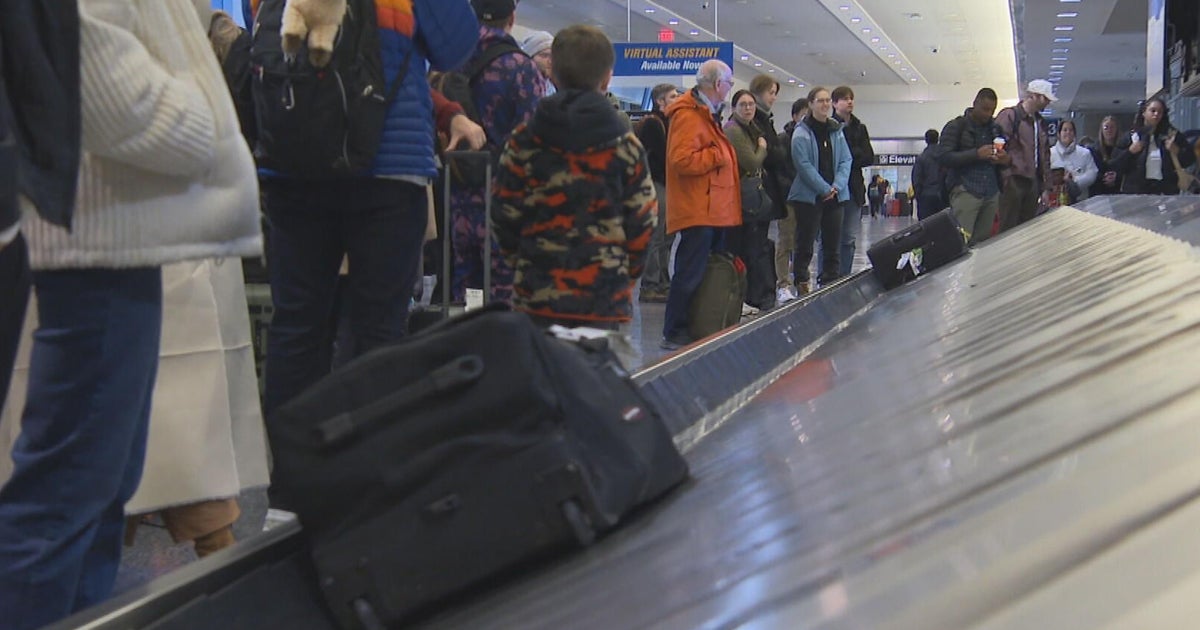Mass. Congressmen Push For Millions In Aid For Fishing Industry
BOSTON (AP) — Three Massachusetts congressmen pushed Friday for tens of millions of dollars in emergency aid for fishermen after the House of Representatives appeared poised to all but bypass the battered industry when allocating disaster relief funds.
U.S. Reps. Bill Keating, Ed Markey and John Tierney each filed amendments to the House's Superstorm Sandy disaster relief bill by a Friday afternoon deadline.
The bills have differences, but all ask for between $116 million and $150 million in aid for fishermen in the Northeast, Gulf Coast and Alaska.
The idea is to prompt the Republican-controlled House Rules Committee to allow at least one of the measures through for a vote on the House floor.
Keating said fishing communities badly need the funds as they face devastating cuts in catch limits this year because some key stocks of bottom-dwelling groundfish, such as cod and flounder, are recovering too slowly. Keating blames a combination of natural causes and poorly conceived federal regulations for the cuts.
"You are seeing restrictions on the fish industry that are just going to take businesses, many of them family-owned businesses for generations, and just completely put them in ruin," he said.
Last year, the acting U.S. Commerce Secretary opened the door for federal aid by declaring a national fishery disaster in the Northeast, citing the unexpectedly slow rebuilding of fish stocks. At the end of the last Congress, the Senate passed a $60 billion Superstorm Sandy relief bill that included $150 million for fishermen.
But the House Rules Committee signaled its intent to advance legislation that provides fishermen with $5 million, at most, prompting the amendments by the three lawmakers.
In his amendment, Markey says $150 million can be allocated to fishermen as an emergency appropriation, meaning it can be given without removing the same amount from other parts of the bill.
Keating's and Tierney's amendments both get the bulk of their funds by suggesting lawmakers reallocate $111 million from a weather satellite program to the fishermen. Tierney would cut funds from other programs that aren't specified for Sandy relief to get to $150 million.
Keating said the weather satellite program is important, but the phase funded in the bill doesn't come until 2016, and the situation with fisheries is far more urgent.
The House Rules Committee will decide Monday which of various amendments will go for a House vote. Whatever the House passes, the Senate still has its say on any disaster relief bill.
The prospect of amendments by three Northeast Democrats advancing in the Republican-controlled House is uncertain, at best. Keating said he hopes partisanship won't play any role in what's decided.
"When you deal with these kinds of situations, whether they're fires in Texas, earthquakes or a drought in the farmlands, we're all in this together on those issues as a country," he said.
Chatham fisherman John Our, 51, said he's not shocked the money has disappeared in the House, given the country's tight finances and the fact that a promises-filled election year is over.
He added that while he thinks fishermen should receive some money, he's not sure how it can be distributed fairly, except perhaps to pay for costly regulatory mandates, such as expensive on-board catch observers that fishermen know they'll eventually have to pay for.
Jackie Odell of the Northeast Seafood Coalition, an industry group based in Gloucester, said while it's uncertain how the funds would be distributed, they definitely are needed. The money is not "pork," as some Republicans in Congress have said, she added. It's a justified response to a declared natural disaster and could be the difference for some fishing businesses this year.
"We have had crisis, after crisis, after crisis, after crisis" in the fishing industry, she said. "But we have never seen (catch) reductions like we are about to see."
Copyright 2013 The Associated Press.



